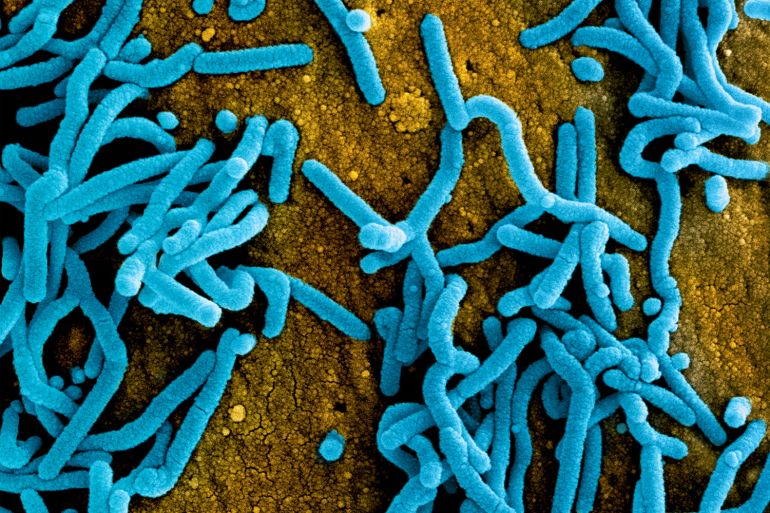WHO intensifies surveillance in E Guinea after Marburg outbreak
The country officially declared its first outbreak of Marburg virus disease on Monday.

The World Health Organization (WHO) has “intensified” surveillance after Equatorial Guinea confirmed an outbreak of the Marburg virus, a highly infectious and deadly disease similar to Ebola, which killed nine people in the African country.
The UN agency convened an emergency meeting on Tuesday with a representative of the Marburg virus vaccine consortium (MARVAC) to discuss the vaccine and therapeutic solutions to the virus and outline research priorities.
Keep reading
list of 4 itemsGermany’s BioNTech plans modular vaccine factories in Africa
Two test positive in Ghana for highly infectious Marburg virus
Ghana declares first outbreak of highly infectious Marburg virus
“Surveillance in the field has been intensified,” said George Ameh, WHO’s country representative in Equatorial Guinea. “Contact tracing, as you know, is a cornerstone of the response. We have … redeployed the COVID-19 teams that were there for contact tracing and quickly retrofitted them to really help us out.”
The WHO also deployed health emergency experts in epidemiology, case management, infection prevention, laboratory and risk communication to boost the country’s response.
Last week, Equatorial Guinea quarantined more than 200 people and restricted movement in Kie-Ntem province after detecting an unknown haemorrhagic fever.
The country officially declared its first outbreak of Marburg virus disease on Monday. In addition to the deaths, Equatorial Guinea has reported 16 suspected cases of the virus.
“Marburg is highly infectious. Thanks to the rapid and decisive action by the Equatorial Guinean authorities in confirming the disease, emergency response can get to full steam quickly so that we save lives and halt the virus as soon as possible,” said WHO Regional Director for Africa Matshidiso Moeti on Monday.
Neighbouring Cameroon restricted movements along its border last week for fear of contagion and, on Tuesday, it detected two suspected cases.
What do we know about the Marburg virus?
Marburg virus disease is a “highly virulent disease that causes hemorrhagic fever” with a fatality rate of up to 88 percent, the WHO said.
There are no approved vaccines or antiviral treatments.
In Africa, previous outbreaks have been reported in Ghana, Angola, the Democratic Republic of the Congo, Kenya, South Africa and Uganda. Outbreaks have also been reported in Europe and the United States.
First identified in 1967 in what was then Yugoslavia after research on imported African green monkeys, the Marburg virus is from the same family as Ebola.
The WHO said infection “initially results from prolonged exposure to mines or caves inhabited by Rousettus bat colonies”.
Once an individual is infected, the disease can spread through human-to-human transmission, and this can happen through direct contact with the blood, organs, or other bodily fluids of infected people and through surfaces and materials that are already contaminated with these fluids.